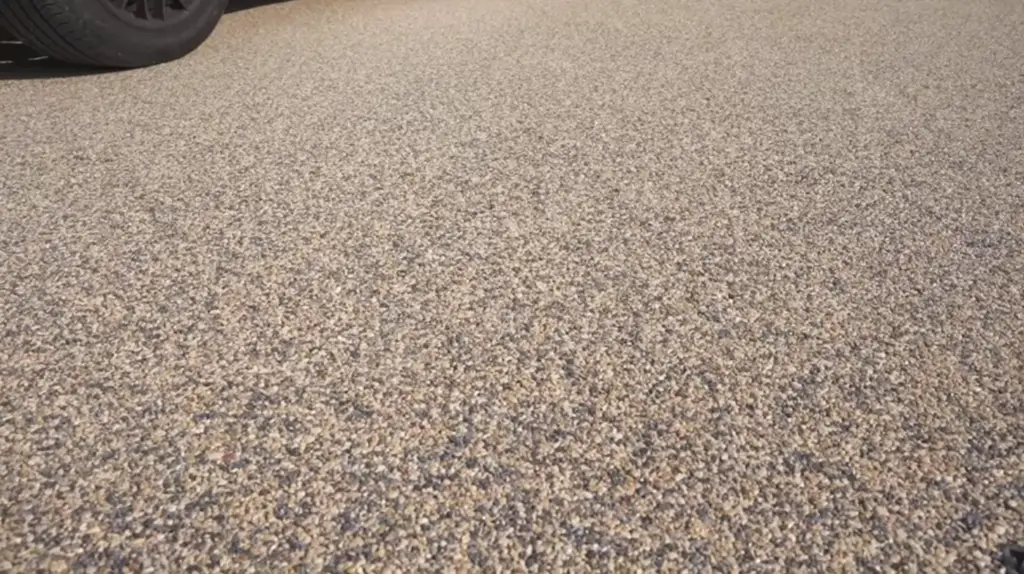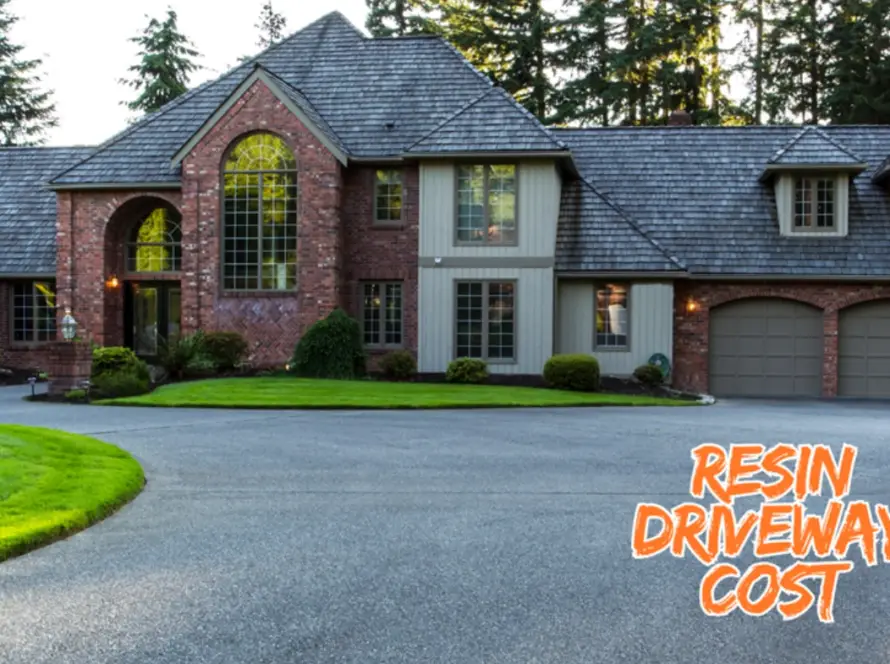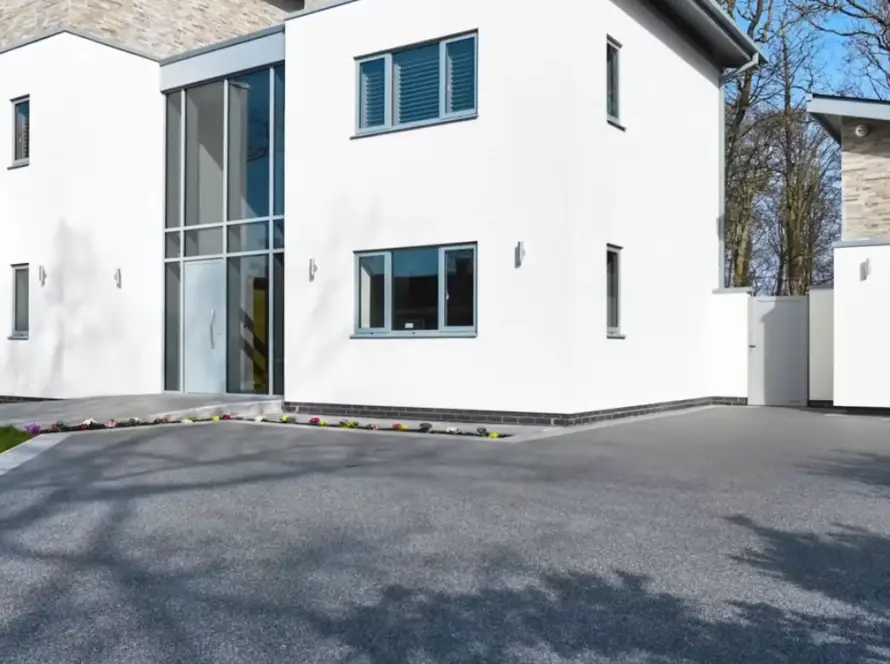Wondering if resin driveways are slippery in the unpredictable UK weather? Here’s the truth: when done right, resin offers remarkable grip and safety, even when wet.
This article unpacks why these stylish surfaces often outperform concrete or shingle resin driveways for non-slip peace of mind.
You’ll discover the smart technology behind their slip resistance, when problems can occur, and how to keep your drive safe year-round.
Understand essential maintenance tips and learn how resin drives cut noise and boost appearance. If you want a driveway that’s both practical and beautiful, you’re in the right place. Read on for crucial, expert-backed insights.
Why Resin Driveways Are Usually Not Slippery?
Resin driveways offer an outstanding alternative surfacing solution because their construction and materials naturally promote grip. Several features boost their safety and traction.
Textured Aggregate Surface Adds Grip
Unlike smooth concrete or tarmac, resin driveways combine resin with natural aggregates such as gravel or stone. This creates a subtly textured surface, delivering improved traction underfoot. The result is a finish that doesn’t just look sophisticated—it offers dependable grip even when wet.
Permeable Structure Reduces Surface Water
A standout feature is their permeability. Resin-bound driveways allow water to drain through, reducing puddles and standing water after rainfall. Fewer puddles mean less risk of aquaplaning or slips, an essential quality in the UK’s rainy environment.
Anti-Slip Additives for Enhanced Safety
Installers can mix anti-slip additives, such as glass grit, directly into the resin. These increase resistance on sloped driveways or in high-traffic areas, making the surface even safer.
As a result, resin driveways are often chosen for settings where children, elderly individuals, or those with mobility challenges frequently use the space.
Low Maintenance Prevents Hazards
Resin driveways resist weed growth and don’t suffer from loose stones found in shingle resin driveways. With minimal maintenance required, surfaces stay clear of moss, algae, and debris, which can otherwise contribute to slips.
When They Can Be Slippery?
Resin driveways are not immune to slipperiness under all conditions. Certain situations elevate the risk and homeowners should be aware of these to keep driveways as safe as possible.
Heavy Rain and Puddles
While permeability is high, exceptionally heavy downpours can temporarily exceed drainage capability, causing brief surface water accumulation. Until it drains, increased slipperiness is possible.
Icy and Frosty Conditions
Like most road surface types, resin can become slippery in freezing weather. Ice that forms atop the textured aggregate can create hazardous patches, just as it can on tarmac, block paving, or concrete.
Wear and Surface Smoothing
Over time, frequent use may polish the top layer of aggregate, reducing the original grip. This is more common with high-traffic driveways or where maintenance is infrequent.
Organic Growth and Debris
Neglected driveways can accumulate organic matter, moss, algae, or wet leaves. Shaded areas, poor drainage, or infrequent cleaning can allow these hazards to flourish. Organic build-up must be regularly addressed for maximum safety.
Incorrect Installation
If not installed with care, problems may arise. A resin driveway needs proper base preparation and correct aggregate selection. Subpar installation can result in poor permeability or uneven texture, increasing slip risk.
Comparing Shingle Resin Driveways and Other Options

Shingle resin driveways blend aesthetic appeal with functionality, offering a stable and textured alternative to loose gravel or conventional paving.
Where loose chippings on shingle driveways scatter and create trip hazards, resin-bonded surfaces keep stones firmly in place, promoting consistent grip and reducing maintenance.
Road Surface Types and Traffic Noise Levels
Different road and driveway surfaces influence both safety and comfort. For example, modern low-noise surfaces (such as porous asphalt) reduce tyre noise and also drain water more efficiently.
Resin-bound surfaces share similar benefits, dampening sounds compared to tarmac and reducing the transfer of traffic noise to homes and gardens.
Road surface types and traffic noise levels are important considerations for UK homeowners concerned about environmental noise and wishing for a quieter domestic setting.
Innovations in Road Construction and Surfacing Solutions
The demand for innovative road construction technology has introduced materials and techniques that improve driveway safety.
Resin surfacing, a product of this innovation, offers not only a visually appealing finish but can be tailored with advanced additives and construction methods.
Professional surfacing solutions in the UK now prioritise drainage, longevity, and anti-slip properties, making resin an industry leader in private and commercial spaces.
How to Maintain a Non-Slip Resin Driveway?
Keep your resin driveway safe by following a set of simple habits:
- Sweep regularly to keep debris away
- Promptly treat moss or algae, especially in damp corners
- Use mild detergents and a stiff brush for deep cleaning
- Apply anti-slip treatments if you notice reduced texture
- Inspect after storms or cold snaps for icy patches and clear them safely
Simple care preserves both the beauty and safety of your resin drive.
Resin vs. Traditional Driveways: Safety Comparison
Resin stands out for its slip resistance, but how does it compare?
- Tarmac may develop algae/moss and become slick unless routinely managed.
- Concrete, particularly when smooth-finished, is notoriously slippery when frosty or wet.
- Block paving can grow weeds or moss between bricks, reducing grip over time.
- Shingle resin driveways excel in providing a stable surface versus loose gravel, keeping the aesthetic while minimising slip hazards.
Suitable Applications for Resin Surfacing in the UK
Ideal for domestic use, care homes, schools, and commercial entrances, resin driveways blend accessibility and attractive looks.
The vast choice of colours and finish options allows integration into traditional or modern UK architecture without sacrificing safety.
Frequently Asked Questions
Can resin driveways be made more slip-resistant?
Yes, during installation, anti-slip additives can be incorporated, especially useful for sloped or high-traffic areas. Regular cleaning will also help maintain grip by preventing organic buildup.
Are resin driveways safe during winter?
Properly installed resin driveways remain safe in winter, especially compared to some alternatives. However, icy conditions can still affect any surface, so timely removal and treatment of ice is essential.
What maintenance do resin driveways require to stay non-slip?
Routine sweeping, cleaning, and periodic checks for organic growth are usually enough. Occasionally, top-up treatments for anti-slip textures may be recommended if surface wear is noticed.
Are resin driveways noisy like gravel or concrete?
Resin driveways tend to dampen sound better than traditional gravel or block paving, contributing to quieter driveways and reducing ambient noise near homes.
Take Care of Your Resin Driveway for Lasting Safety and Style
Resin driveways offer a reliable, stylish, and safe surfacing choice for UK homeowners. With proper installation, smart design features like anti-slip aggregates, and simple maintenance, they provide excellent traction in wet or dry conditions.
While no surface is entirely slip-proof, especially in icy weather, resin outperforms many traditional alternatives in safety and durability.
From reducing noise to enhancing curb appeal, resin driveways strike a perfect balance between function and aesthetics. Invest wisely, and enjoy a driveway that’s both practical and long-lasting.



